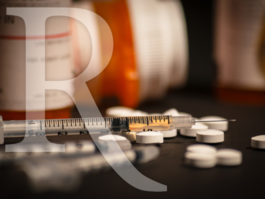At Least 4 Good Reasons To End the War on Drugs
A Commentary By Debra J. Saunders
"If we cannot destroy the drug menace in America, then it will surely in time destroy us," President Richard Nixon told Congress in a special message on June 17, 1971, which generally is credited as the day the "war on drugs" began.
Actually, Nixon didn't use the term "war on drugs" in the address. He used it later. And while Nixon talked tough about going after drug traffickers, he emphasized that rehabilitation would be a priority as he dedicated the lion's share -- $105 million of $155 million in new anti-drug funding -- "solely for the treatment and rehabilitation of drug-addicted individuals."
Some 40 years later, there are only losers in the drug war. Drug use is up; 118 million Americans have used illegal drugs, and the cost of prosecuting the drug war and offenders continues to mount.
On Friday, various anti-drug war groups will be holding vigils in Washington, San Francisco and other cities to remember the drug war's many victims.
"The war you plan is not necessarily the war you end up fighting," noted Eric Sterling, president of the Criminal Justice Policy Foundation.
Sterling should know. As a congressional aide, he helped write the 1986 Anti-Drug Abuse Act, which featured draconian federal mandatory minimum sentences.
Sterling will be at the vigil Friday in Washington's Lafayette Square.
This column is not to pay homage to drug use. Drug abuse was responsible for the death of 38,371 Americans in 2007, according to White House statistics. In 2009, 10.5 million Americans reported they had driven under the influence of illicit drugs. That's scary.
Prohibition didn't work for alcohol, and it doesn't work for drugs. As Daniel Okrent wrote in his book "Last Call: The Rise and Fall of Prohibition," "In almost every respect imaginable, Prohibition was a failure. It encouraged criminality and institutionalized hypocrisy. It deprived the government of revenue, stripped the gears of the political system, and proposed profound limitations on individual rights."
I'll go down the list.
Encouraged criminality: The Department of Justice reported that in 2009, "midlevel and retail drug distribution in the United States was dominated by more than 900,000 criminally active gang members" representing more than 20,000 U.S. gangs.
Institutional hypocrisy: President Obama has admitted to using illegal drugs, President George W. Bush coyly would not say and President Bill Clinton said he didn't inhale. A drug conviction could have curtailed their careers, yet all three presidents were drug warriors in the White House.
Deprived revenue: Harvard economist Jeffrey Miron estimated in 2008 that legalizing drugs could save federal, state and local governments $44 billion per year, while taxing drugs could yield an added $33 billion.
Limiting individual rights: Allow me to quote Neill Franklin, a former Baltimore narcotics cops and executive director of Law Enforcement Against Prohibition. "President Obama needs to think about where he would be right now had he been caught with drugs as a young black man. It's probably not in the Oval Office, so why does he insist on ramping up a drug war that needlessly churns other young black men through the criminal justice system?" LEAP will release a report this week that addresses Franklin's concerns.
On the state level, the drug war has begun to wind down. In 2000, Californians passed Proposition 36, which mandates probation and treatment for those charged with drug possession. Last year, Gov. Arnold Schwarzenegger signed a law that made possession of small amounts of marijuana an infraction; 13 other states have similar laws.
As Sterling put it, "The states are no longer drinking the Kool-Aid from Washington on drug policy."
As for Washington: "Washington is never going to be the leader on this. They don't lead public opinion. They follow public opinion."
COPYRIGHT 2011 CREATORS.COM
See Other Political Commentary
See Other Commentary by Debra J. Saunders
Views expressed in this column are those of the author, not those of Rasmussen Reports. Comments about this content should be directed to the author or syndicate.
Rasmussen Reports is a media company specializing in the collection, publication and distribution of public opinion information.
We conduct public opinion polls on a variety of topics to inform our audience on events in the news and other topics of interest. To ensure editorial control and independence, we pay for the polls ourselves and generate revenue through the sale of subscriptions, sponsorships, and advertising. Nightly polling on politics, business and lifestyle topics provides the content to update the Rasmussen Reports web site many times each day. If it's in the news, it's in our polls. Additionally, the data drives a daily update newsletter and various media outlets across the country.
Some information, including the Rasmussen Reports daily Presidential Tracking Poll and commentaries are available for free to the general public. Subscriptions are available for $4.95 a month or 34.95 a year that provide subscribers with exclusive access to more than 20 stories per week on upcoming elections, consumer confidence, and issues that affect us all. For those who are really into the numbers, Platinum Members can review demographic crosstabs and a full history of our data.
To learn more about our methodology, click here.



